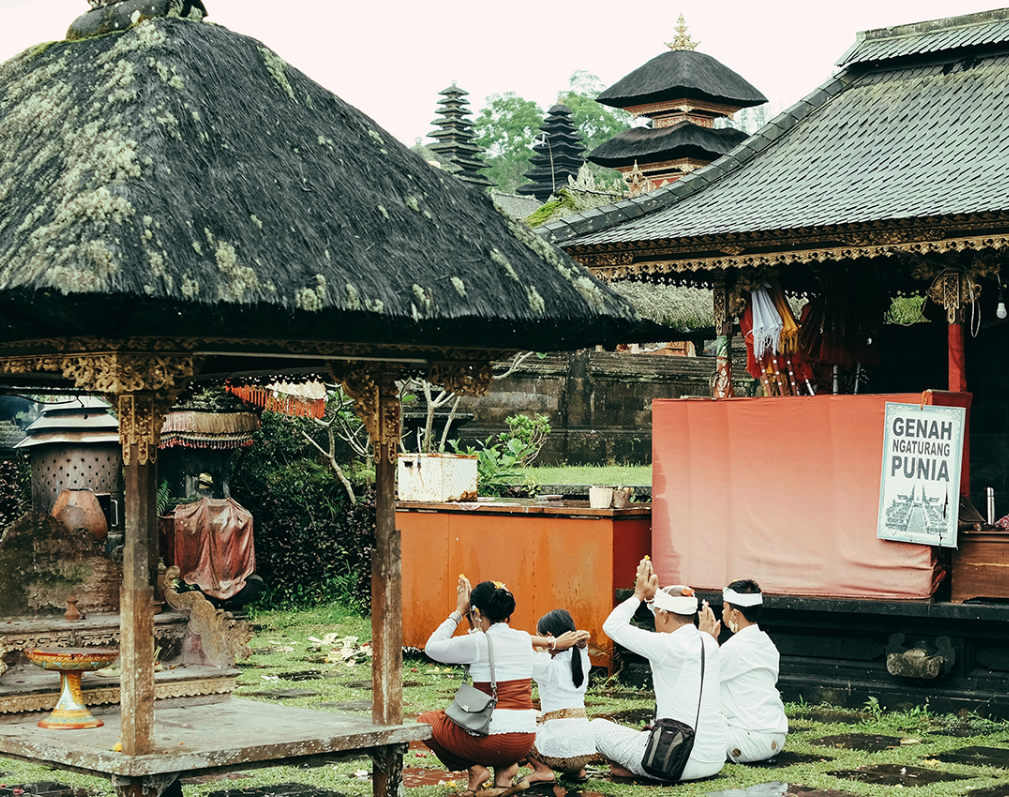Published date
Written by
The New Year holds the promise of fresh beginnings-a blank canvas waiting for your personal brushstrokes.
Yet, how often have rigid resolutions left us feeling frustrated or unfulfilled by mid-February? This year, consider a new approach: setting intentions instead of resolutions.
Guided by mindfulness and inspired by timeless practises from Bali and Asia, intentions focus on growth, balance, and enjoying the journey rather than fixating on the destination.
Let 2025 be a year where progress feels meaningful, compassionate, and deeply aligned with who you are.
What are intentions, and why are they better than resolutions?
The difference between intentions and resolutions lies in their mindset. Resolutionsare rigid, all-or-nothing decisions — "go to the gym daily," "eat no sugar," or "save $10,000." When life's unpredictability derails these plans, it often leads to disappointment.
Take, for instance, the growing popularity of "Dry January" — a month-long alcohol-free challenge. While admirable, rigidly following it as a resolution can feel punishing if you slip up.
By setting an intention to mindfully reduce alcohol consumption instead, you allow room for progress without guilt. This approach fosters sustainable habits that align with your values and lifestyle.
Intentions, on the other hand, are more forgiving. They act as guiding principles that align with your values, leaving room for adjustment and self-compassion. Instead of setting a resolution to exercise seven days a week, for example, an intention might be to move your body joyfully and consistently.
Setting intentions: Lessons from Bali, Japan and Thailand

Across Asia, cultures embrace philosophies that focus on harmony, mindfulness, and incremental growth-offering timeless wisdom for your New Year's intentions.
1. Embrace balance with Tri Hita Karana
In Bali, the philosophy of Tri Hita Karana teaches that true happiness comes from balancing three relationships:
- With the Divine: Foster a spiritual connection, whatever that means to you. Begin each morning with gratitude, prayer, or quiet meditation-similar to the daily canang sari offerings made by Balinese families to honour their harmony with the sacred.
- With Others: Strengthen bonds with friends, family, and community. A simple intention might be to spend undistracted time with loved ones or to practise kindness in everyday interactions.
- With Nature: Reconnect with the earth. Start a small garden, reduce waste, or take mindful walks in nature. These actions can ground you in the rhythms of the world.
2. Practise incremental growth with kaizen
From Japan comes the philosophy of kaizen, or continuous improvement through small, consistent steps. Whether your goal is personal or professional, avoid overwhelming yourself with grand plans. Instead:
Set micro-goals: Dedicate 10 minutes a day to a new skill or practise.
Celebrate small wins: Acknowledge progress, no matter how small, to keep yourself motivated.
Iterate and improve: Allow flexibility to adapt your path as you learn.
3. Prioritise Community and Connection
In Thailand, the concept of sangha emphasises the importance of community for personal well-being. Set an intention to nurture connections that uplift and inspire you.
This could mean joining a mindfulness group, hosting shared meals, or simply spending time with those who bring joy to your life.
How to set meaningful intentions for 2025

Ready to shift from resolutions to intentions? Here's how:
Move more, mindfully
Moving your body doesn't have to be a chore; it can be a joyful experience that energises your day. Start by incorporating movement into your routine in ways that feel natural and enjoyable.
Walk in nature to connect with the outdoors, try yoga to enhance flexibility and inner calm, or explore local dance classes for a creative and engaging workout.
Begin small, dedicating just 15-30 minutes a few times a week, and allow yourself the freedom to experiment with different activities.
Flexibility is key-listen to your body and adjust your plans as needed. Let go of guilt on rest days, recognising that rest is an essential part of your overall well-being. The goal is not perfection but consistency in moving your body in ways that uplift your spirit.
Eat with gratitude, not restriction
Approach eating with a sense of gratitude rather than strict rules. Focus on nourishing your body while allowing room for flexibility and enjoyment. Delve into preparing home recipes that emphasise fresh, wholesome ingredients and bring balance to your meals.
Cooking at home allows you to take control of what you consume, creating dishes that meet your body's unique needs. Incorporate more vegetables, lean proteins, and whole grains into your diet to enhance energy levels and overall well-being.
When indulging in treats, savour them mindfully without guilt, embracing moderation rather than restriction. Explore recipes inspired by Asian flavours, such as Balinese lawar or Thai tom yum, which offer a delicious balance of taste and nourishment.
By cooking at home, you cultivate a deeper connection to the food you eat, fostering gratitude and a harmonious relationship with your body and its needs.
Cultivate mindfulness and rest
Incorporating mindfulness and rest into your daily life can have profound effects on your mental well-being. Start small by setting aside moments for gratitude journaling, where you reflect on the positive aspects of your day.
Practise mindfulness with simple techniques, such as focusing on your breath or using guided meditation apps like Still Life or Insight Timer. Make rest a priority by scheduling downtime to relax, read, or simply be present with yourself.
These restorative practises not only recharge your mind but also help you approach each day with clarity and balance. By committing to small, manageable habits, you can cultivate a deeper sense of inner peace and resilience.
Improve financial clarity
Financial clarity starts with understanding your current habits and setting achievable goals. Begin by tracking your spending for a month to identify patterns and areas for improvement.
Automate your savings by setting aside a fixed amount regularly, even if it's a modest sum. Small, consistent contributions add up over time and build a sense of financial security.
To make saving more engaging, try a savings challenge where you set incremental goals and celebrate each milestone.
Viewing wealth as a tool for independence and resilience can inspire a more intentional approach to money management. With mindful planning, you can achieve greater stability and freedom while reducing financial stress.
Your 2025 call-to-action
As you enter 2025, take a moment to reflect:
What small, meaningful intentions will guide you this year?
Share your thoughts and stories with us on Instagram and X. Together, let's inspire one another to create a year filled with balance, mindfulness, and growth.
[[nid:713144]]
